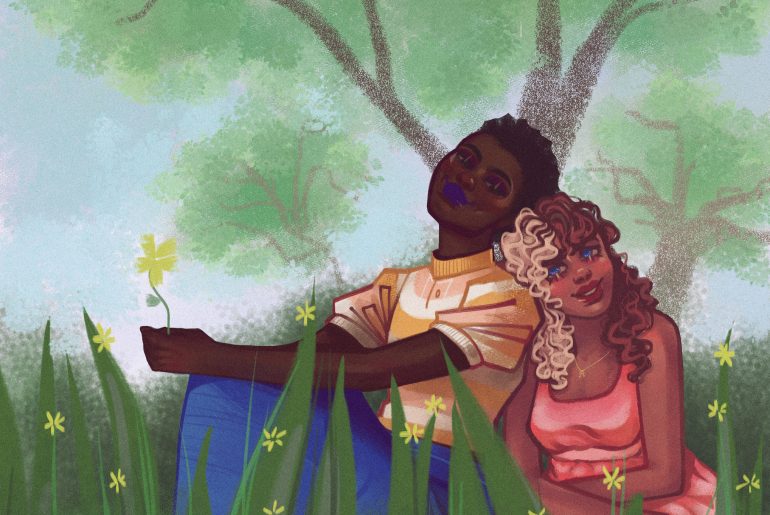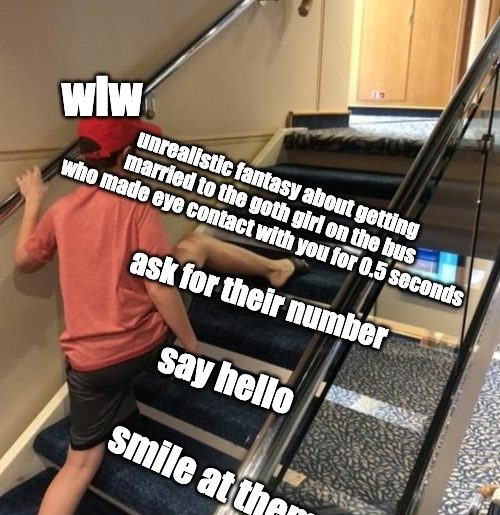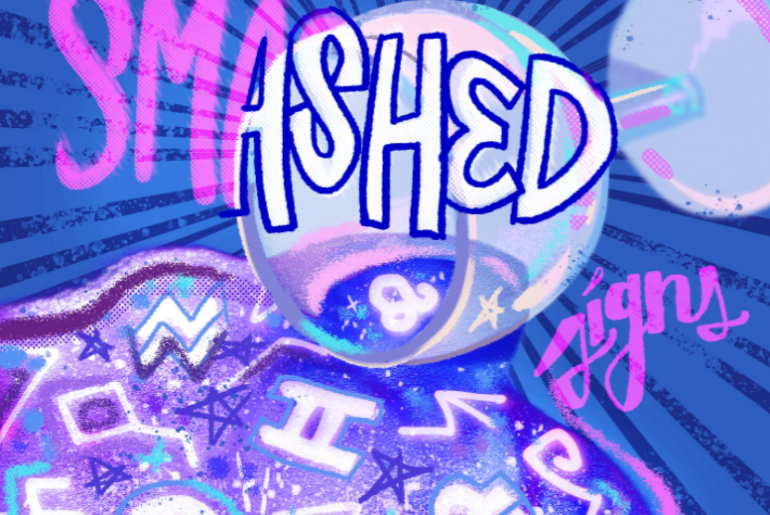Photography & Interviews by Alexandria Storm
There is little information available on the intersection of mixed race and LGBTQ+ identities. In this installment of Community Profiles, we highlight the diverse experiences of mixed-race LGBTQ+ community members at Berkeley.
Quotations have been edited minimally for readability.
Reanna Norman
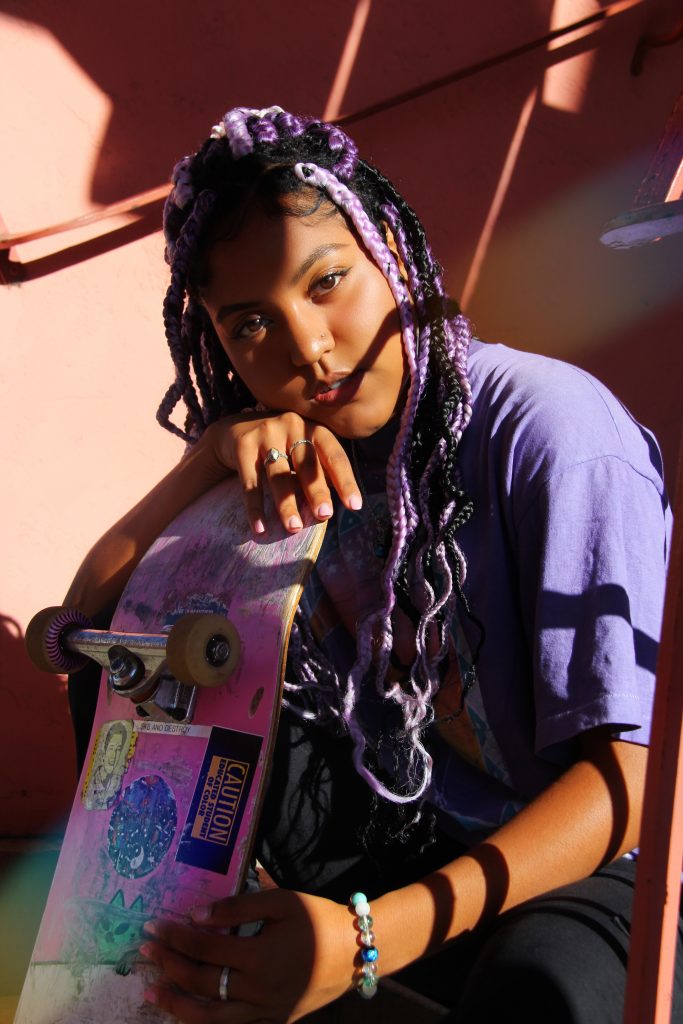
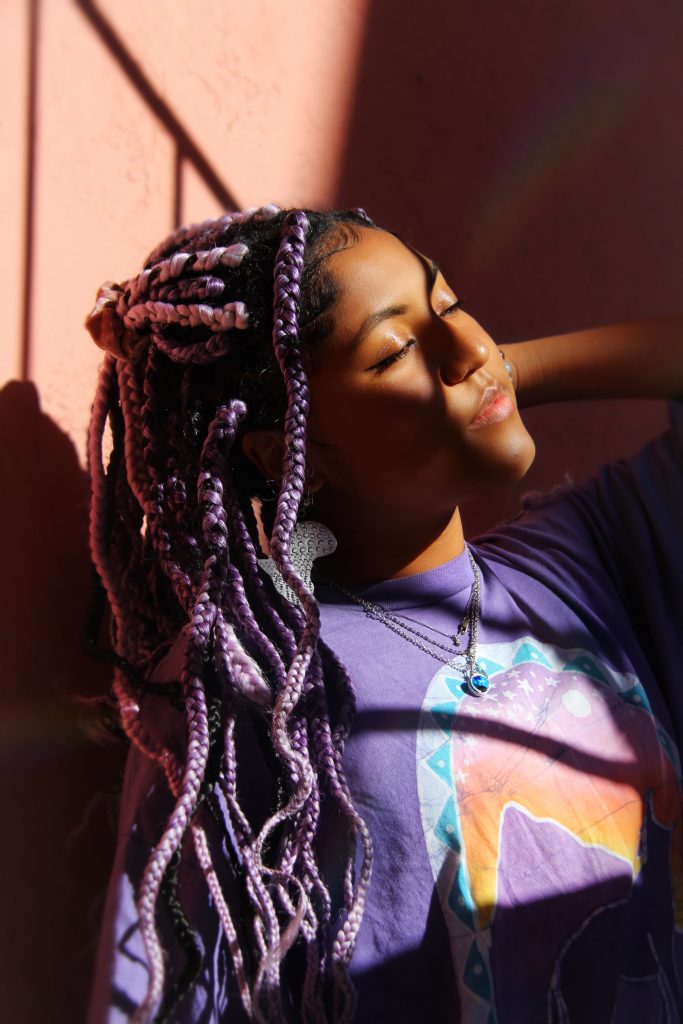
I’m queer, Okinawan, and Black. I use she/her pronouns.
My background is beautiful to me. I’ve started to stop saying I’m half of each because I just want to be seen as whole of both. I feel like I live two lives, and I am appreciative of it. I was raised by my mother and her Okinawan culture, but I would see my dad on the weekends. My life is centered around these two identities.
I’ve always been questioning, and in the circumstances I’ve found myself in, cishet and straight were the norm. Tumblr 2012 helped me discover my queer identity while I was living in South Texas. I thought, oh shit, people are gay! I’m still in that exploration phase, but I do know I’m not straight. Being multiethnic and not being in the norm by default made it easier for me to deviate from the norm. Every mixed person I know who’s not mixed with white is queer, and that’s been interesting for me to notice.
If I could give my younger self advice, I would tell her that you don’t really need to know who you are right away. Being outside of the box was a box in itself. For a minute, I called myself bisexual and tried putting meaning to these labels, especially since words have different meanings everywhere you go. I’d tell her to try more things and relax.
Aja Maree-Smith
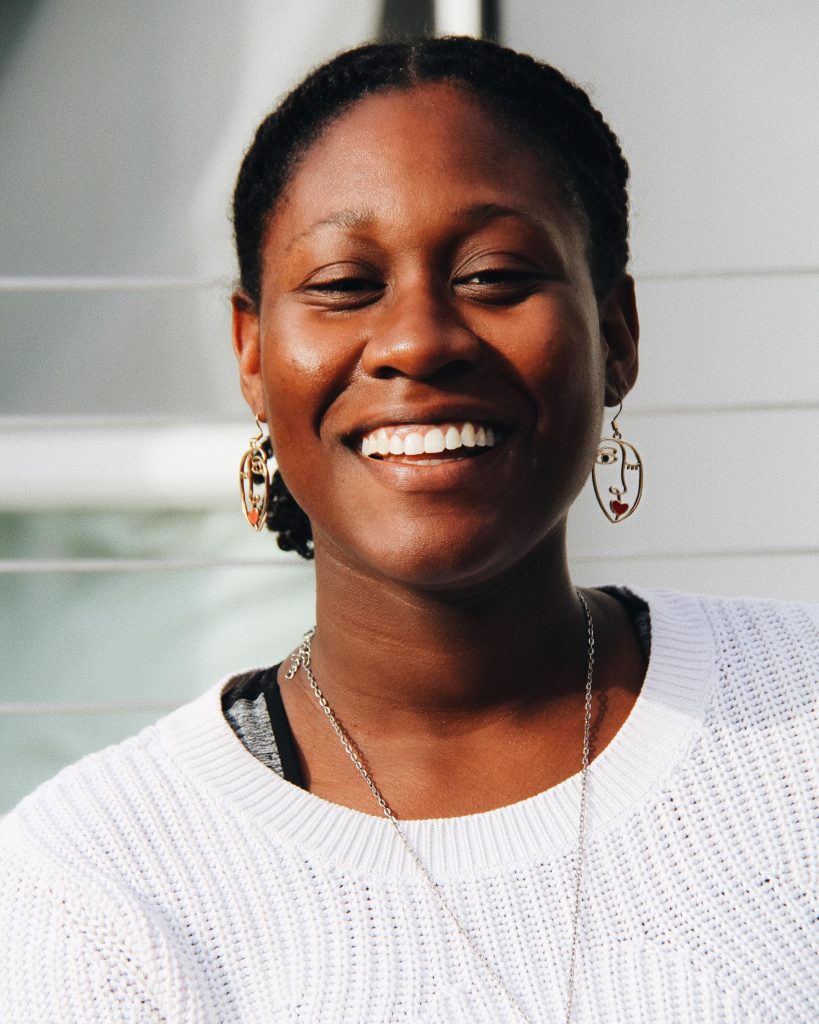
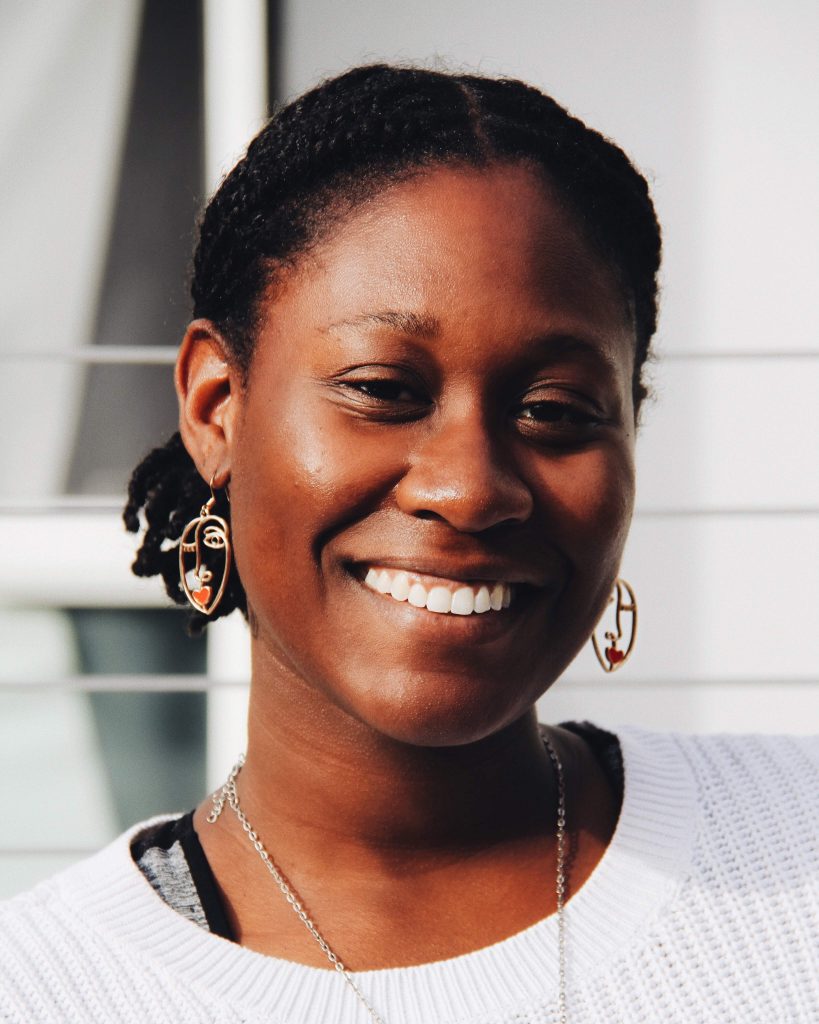
I am an Afro-Caribbean Latina and a panromantic lesbian. I am Puerto Rican, Virgin Islander, Irish, Black, Blackfoot Native American, Ethiopian, Mexican, and Cherokee.
I have so many ethnicities, so it is very interesting to relate to a lot of people and a lot of experiences because I encompass the vast majority of races. I am allowed to experience more than one culture at a time, and it’s ok. Being femme and dark-skinned, they automatically assume I’m full Black and straight. Back when I was younger in school, we would have to draw out our ethnicities, and I put the Irish and German flags. My classmates told me, “you’re not allowed to put down that race.” They told me what I was and said I don’t look mixed. I can’t change the fact that I’m dark-skinned and still have family from Europe.
My sexuality can be isolating because a lot of other people experience sexuality differently. I want people to understand that romantic and sexual attraction are separate. While being a lesbian means I am only sexually attracted to women, my panromantic identity means I am capable of having romantic feelings for anyone regardless of gender. This sometimes isolates me from queer communities but that’s ok to me. Growing up in LA, the gay scene is very white. I’ve been to West Hollywood, which is the queer area, with other people of color. We were stared at and ostracized the whole time because we weren’t the norm of what they expected.
In both of these identities, I am a minority, so in this heteronormative world, I am disadvantaged. The connection between my sexuality and race is that all of my cultures are focused on heterosexuality. It’s hard to be mixed and queer because they’re “not supposed to blend together,” and if you are mixed that’s already not the norm in society. Do not pressure yourself to fit in with labels. There’s a lot more to life than what we see on the surface.
Jenesis Mango
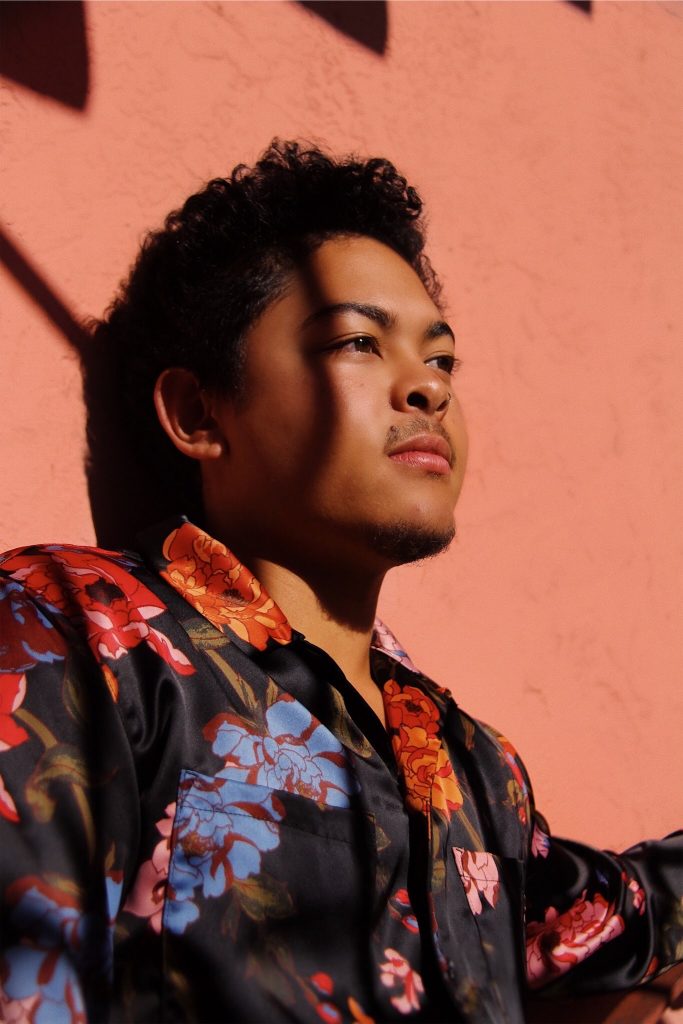
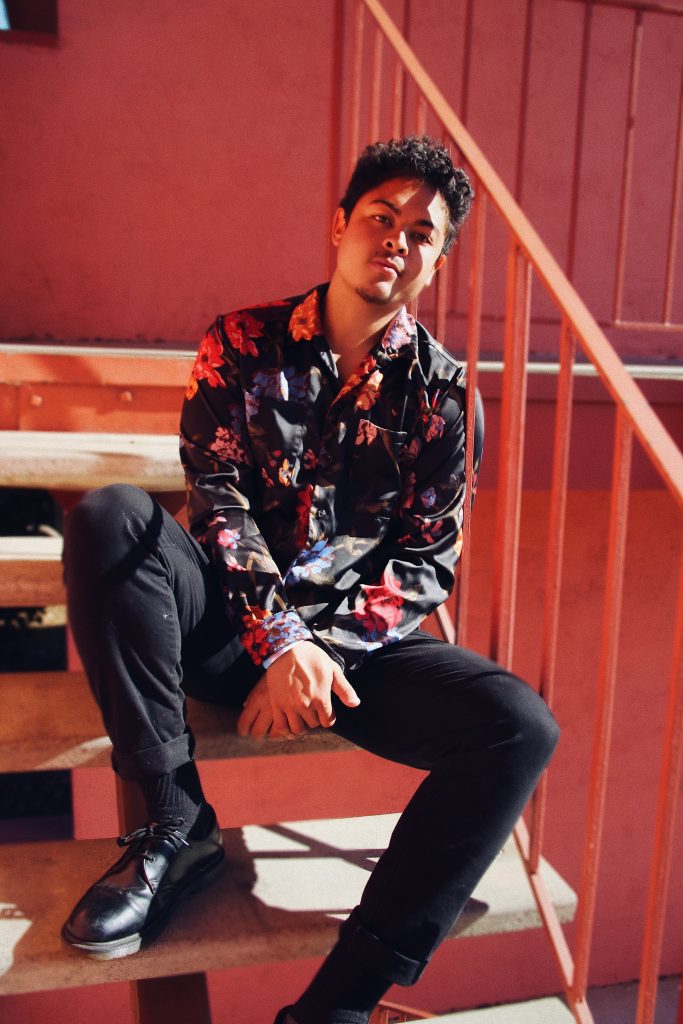
I am Black and Japanese. I use he/him/his pronouns, and I am a bisexual trans guy.
My racial identity is really beautiful because I’m immersed in two different cultures since my dad is Afro-Caribbean. It’s tough being mixed because I feel like I’m nothing but also everything, and I never feel enough of one thing. Being Black and racially ambiguous, most often I’m not perceived as Black. My Black peers and family experience anti-Blackness in a way that I don’t.
I’m in the queer community both by my gender and sexuality, and it’s one of the biggest communities that’s supported me while at Berkeley. As a trans guy, I was more visibly queer before. Now I can pass as cisgender and straight when I want to. It’s been a long journey to reconcile with my parents, as my mom is Mormon, and my dad is Catholic. I feel like the worst part is over, and I’m lucky that now these identities are more about giving back to the community.
Being bisexual has my toe dipped in the gay and straight worlds, and also the Black and Japanese worlds. If I’m in one space, one of my identities is erased, and I struggle to live as both identities at the same time. For gender, I am able to pass now and can control whether people know I am trans. In some spaces I’m just a dude, and in others, my trans identity is the center. Paying honor to both identities, whether gender, sexuality, or race, is a similar struggle.
To my younger self, I would say to take your time. I would tell him there is no one way to do it. For young queer kids, a lot of the knowledge we get is from YouTube videos, but the way queerness is portrayed on media should not define you. Being trans or queer can look differently for you, and it doesn’t make it any less valid. There’s a lot of pressure in certain spaces to rush things, like being out, loud, and proud. For trans people, there’s pressure to medically transition and take hormones and have surgery. You don’t need to rush or partake in either of those things in order to validate your identities. It’s really important as a mixed, queer, or trans (or all of the above) person to find community, even it’s just one person. It’s common to feel alone in how you’re feeling, but the Bay is so big. There is at least one person who shares at least one identity.
Naima Nazouari-Hill
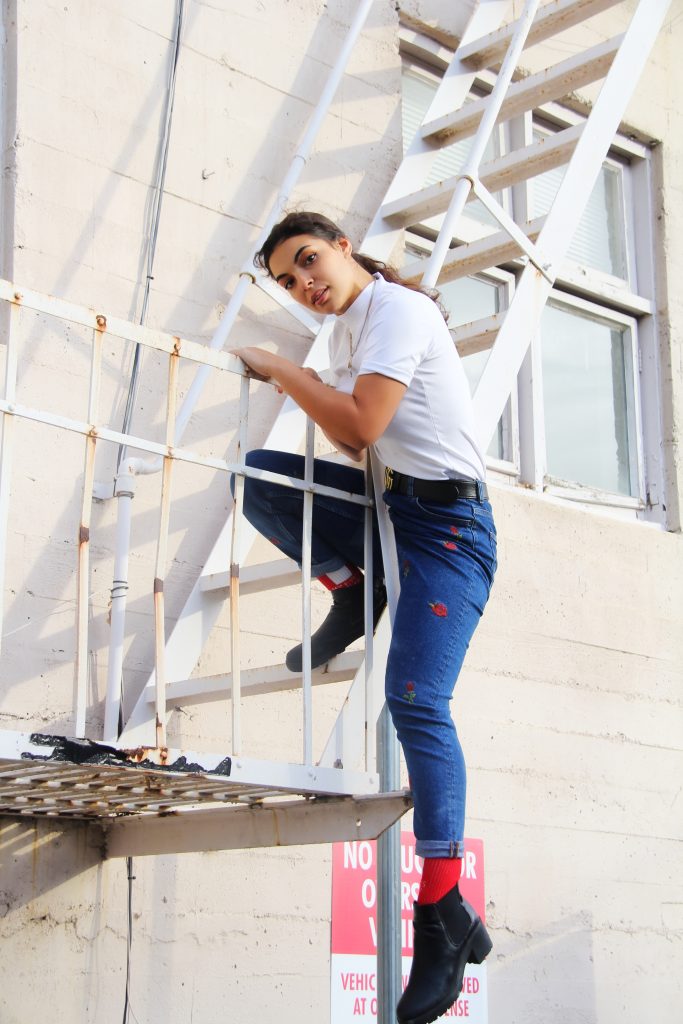
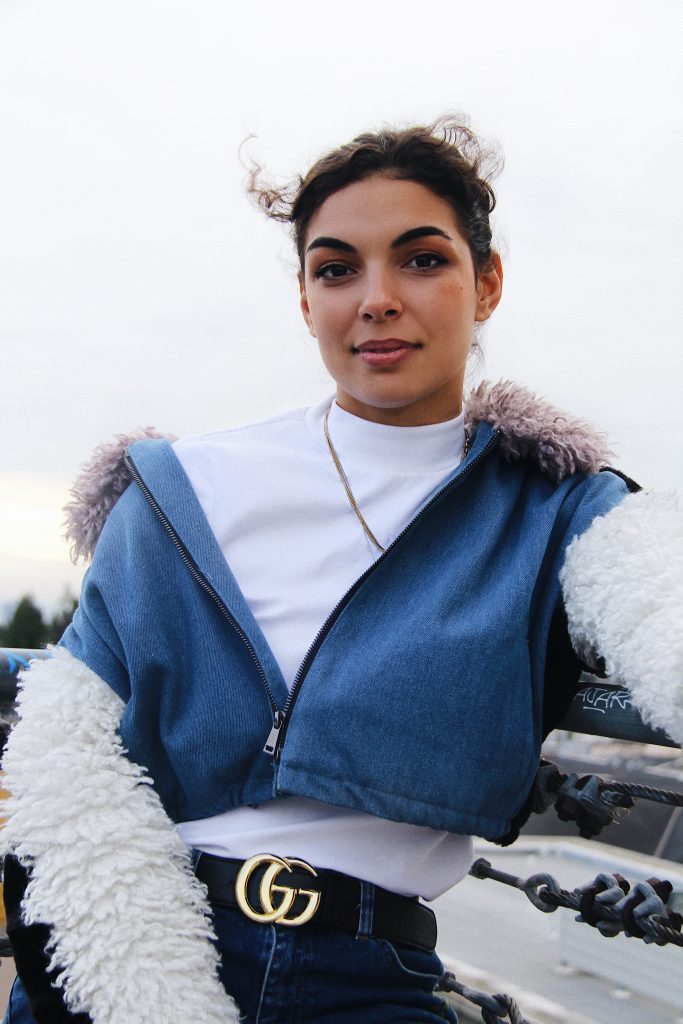
I am a Moroccan American bisexual woman, and I’m married to a woman.
I’m very in the middle of a lot of things in terms of ethnicity and sexuality. It makes me always want to understand other people’s viewpoints. I understand the American viewpoint, but also the conservative Muslim viewpoint. I minor in Journalism, so I think about things very analytically, and I’m always trying to understand everyone’s viewpoints and how people think. There’s this myth that America is the only place that’s a melting pot of multiracial people. Morocco is also an extremely multiracial place. People are a mix of French, Portuguese, Spanish, Arab, and Muslim. Everyone there sees everyone as Moroccan if you are from there, and that’s the difference from America. However, it is illegal to be gay in Morocco, and this makes it difficult to travel there as a queer couple.
I love exploring film and discovering different people’s identities. I don’t care about people’s gender identity, sexuality, etc. I always find it strange to talk to people who are homophobes. I also see a lot of issues with the gay community because the Castro in San Francisco is run by cis gay white men. For that reason, I sometimes like to use the word queer to be more inclusive.
It’s easy to feel disempowered when you’re some kind of minority, but disempowerment is just a feeling. There are other people around you who are fighting for the same things you are, even if it’s in a different form, so you should choose who you want to be in the world and just do it.
Isa Weiskopf
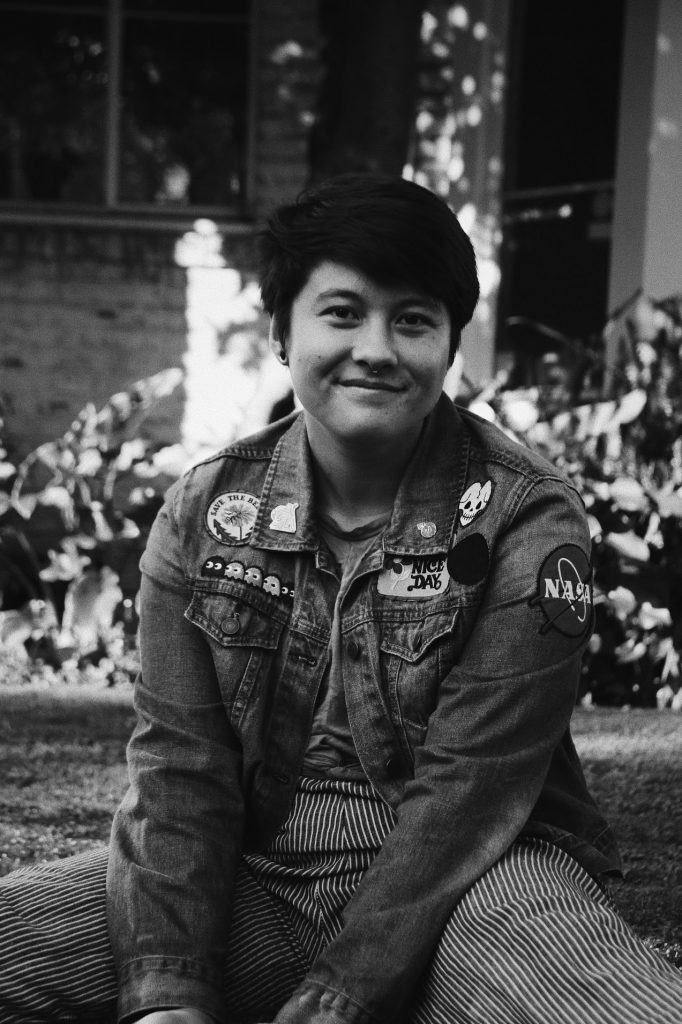
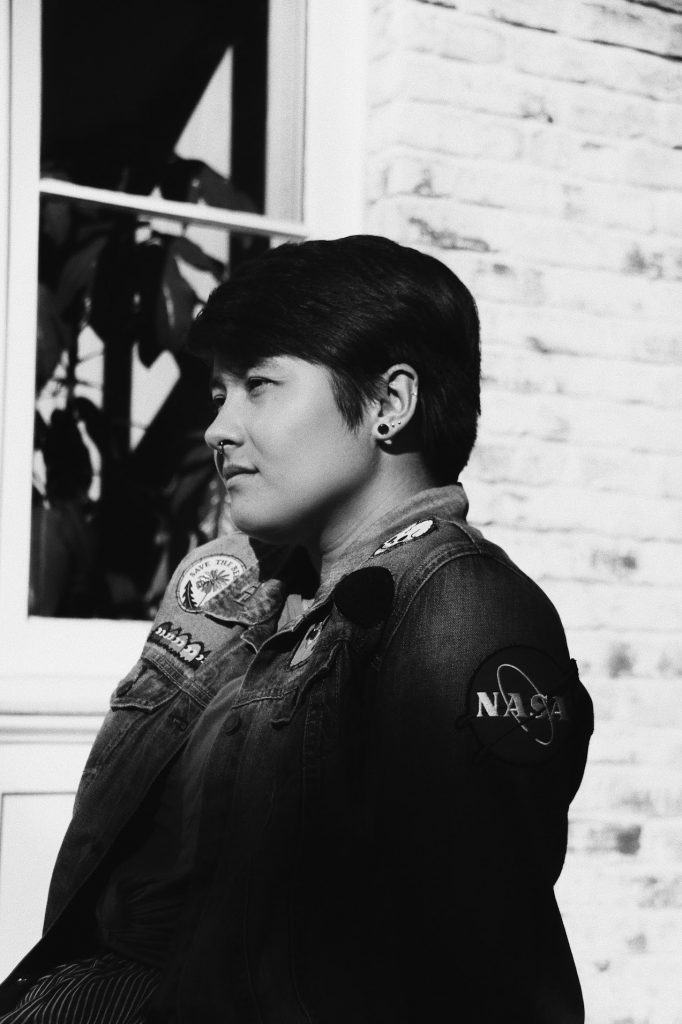
I’m half Chinese and half German Jewish, non-binary (but also questioning), and queer.
My racial identity is confusing. I feel culturally detached from both parts of my heritage. I’m familiar with the history of my Jewish father’s side, but I have no direct connection to Judaism. My dad is a secular Jew, so I was raised Catholic. We never really had any connection other than knowing my grandpa had to flee Austria to Bolivia to avoid the Holocaust. On my mom’s side, we are from southern China and I learned recently that my great-great-grandfather worked on the transcontinental railroad. He was forced to go back to China after the work was done because they did not want Chinese people in the United States. I noticed that my mom has a lot of internalized racism and deep resentment of her childhood and the way she grew up. She pretends she doesn’t understand Cantonese and asks everyone to speak in English. It’s compounded by the fact that my dad’s white and she’s internalized his racism.
I’ve definitely felt ambiguous with my sexuality, gender, and race. I always feel like I’m in a gray area for everything. Being able to come to terms with sexual orientation and gender identity has been really difficult, but once I got support from friends it was really liberating. I like being at Berkeley in general because I can go through my day without being misgendered. I can always go to a place where I know I won’t be misgendered. My family isn’t openly homophobic or transphobic, but they don’t really understand or take it seriously.
I’d tell younger myself that it’s not going be awful forever. You will find people who really love and appreciate you, respect you, and validate you. You don’t have to force your family to accept you if they don’t. You don’t need to put in the emotional labor if they aren’t going to do it. Surround yourself with people who value you and respect you, and life will get so much better.
Elsy Lewis
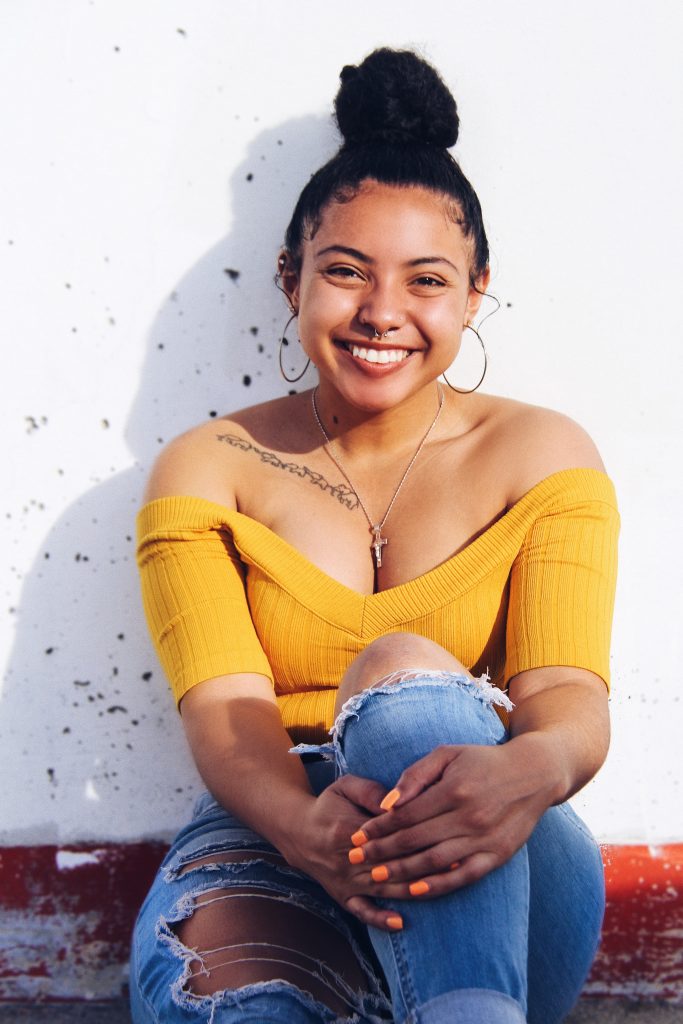
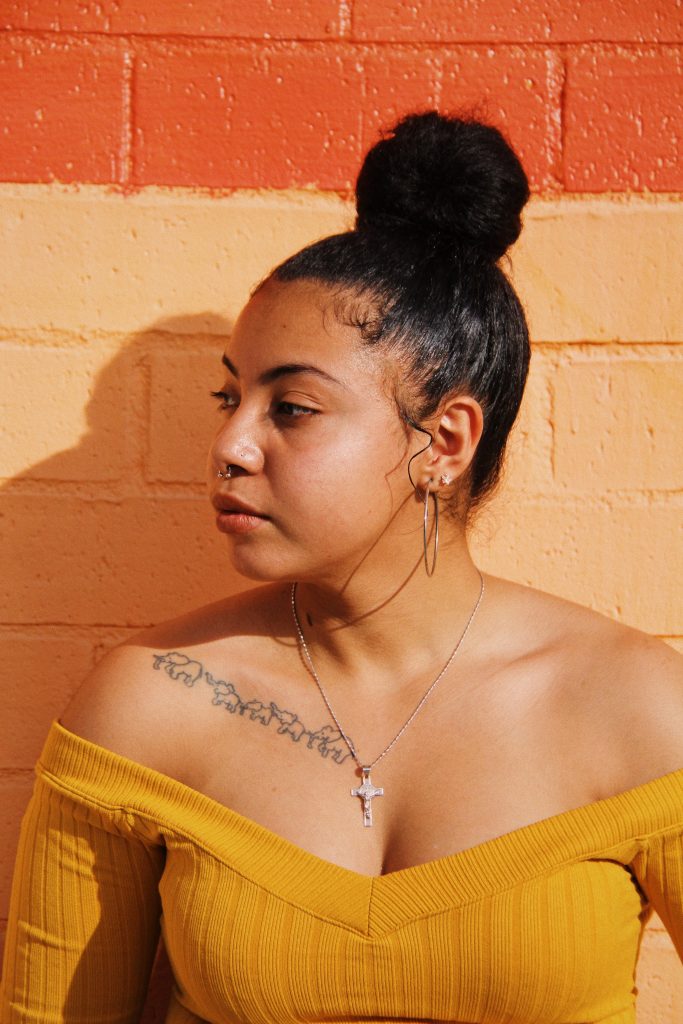
I use she/her pronouns, and I’m bisexual, Black and Guatemalan.
As someone who is bisexual, I’m constantly being asked if I’m confused, going through a phase, or just experimenting. Being Black and Latinx means I have to work 10x harder with limited resources, but I also have very strong connections within my community.
I see plenty of homophobia within my ethnic communities. In Latinx culture, there is a big emphasis on machismo. You’re either very masculine or very feminine. Queerness is not understood by older generations, but it’s also not fully accepted by the younger generations either.
My bisexuality is disregarded by my family, but if I were lesbian it would have been way harder with them because as a bi person I’m coined as confused or figuring it out. Being mixed, I’m told “you’re Black and you’re half Hispanic” and that I have half each identity. In my experience, in the Black community, you’re not as welcome. So far the Latinx community has been more accepting of me being mixed.
You’re not half Black, you’re not half Latinx, you are who you define yourself as. There are no restrictions or boundaries. I love that I can find always find a community somewhere. If I was just one, it would be harder to fit into communities, but now I have three. There are endless opportunities and endless friendships.
Kate Montana
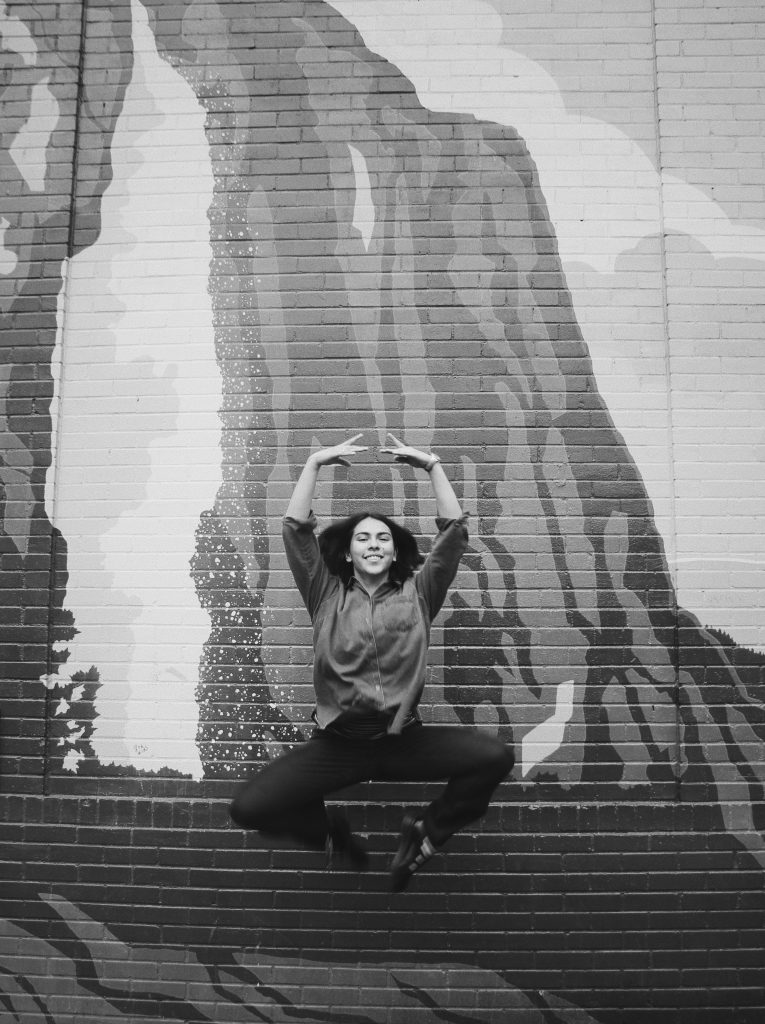
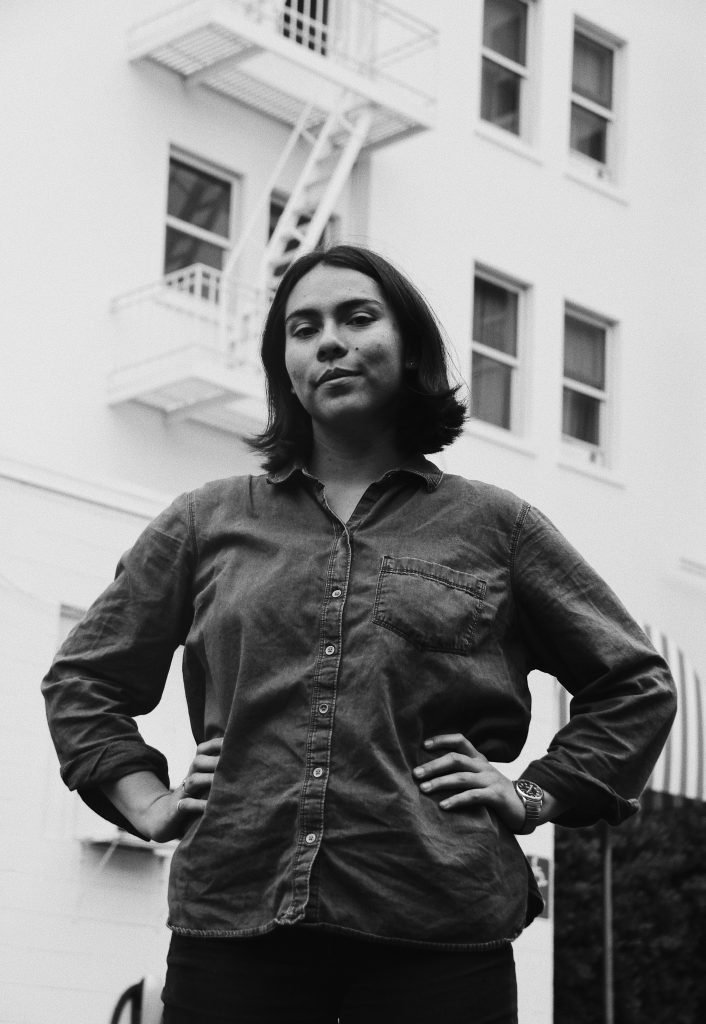
I’m a German, Taiwanese, Mexican, and Native American bisexual woman.
My mom is white, mainly German, and my dad is Taiwanese, Mexican American, and Tiwa Pueblo. My ethnicity is tricky because I don’t see my dad’s side of the family, or the “ethnic side,” that much, so my upbringing was centered around my mom’s family. I feel disconnected from my Taiwanese, Mexican, and Native family and identity. I really want to connect with my ancestors and culture but practically it hasn’t worked out that way. Knowing these identities are within me but not having a way to connect with them in a daily sense is hard. I can’t just forget half of my ancestry, so it’s difficult.
I didn’t come to terms with being bisexual and couldn’t say it out loud until the summer before my junior year of Berkeley (I’m a senior now). It just started when I told a couple of people. This past summer I had an internship in SF, and I lived with other interns. I made the conscious decision to be out to them. I was like wow, this is nice. It wasn’t an announcement; I didn’t have to prove any part of it. I’ve noticed there are different standards for bisexual women and men. For bisexual men, they’re seen as gay and won’t come out fully, but bisexual women have to prove their queerness more often.
Both experiences speak to my general confusion about who I am. They are both crossroads of different ends of spectrums. Being multiracial makes it four-dimensional. Both are experiences of me in the middle of different avenues of identities. My place in this intersection shifts with my mood and what I feel like sharing that day, and it can be confusing. All in all, I’m in the middle somewhere of many different identities.
Miranda Mosley
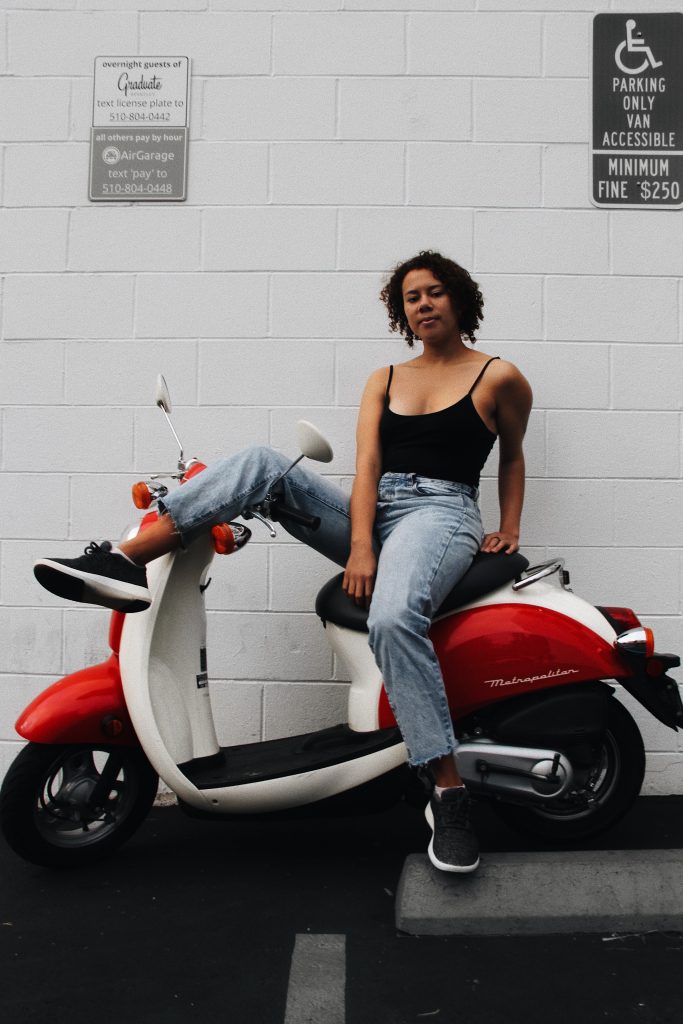
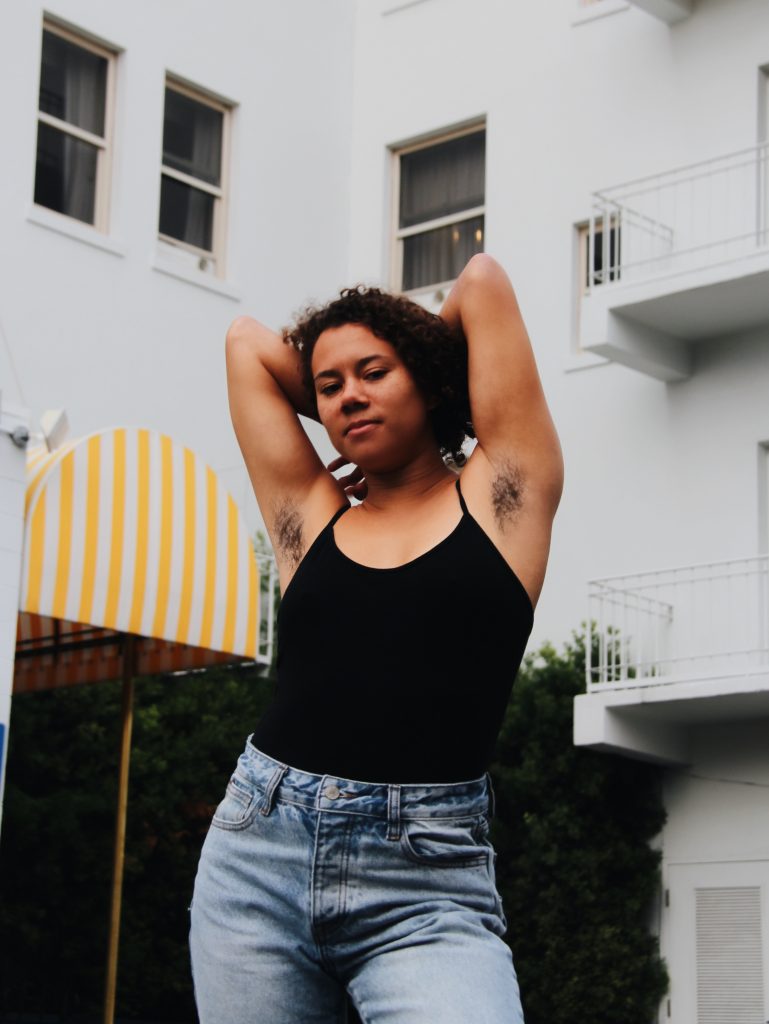
I’m bisexual and biracial Black and White.
For me, identifying as mixed was hard for me to navigate. Growing up, I was told both that I’m too Black and that I’m too white. It wasn’t until recently that I recognized my internalized anti-Blackness. I now identify as mixed race and Black. To me, this identity means comfort, compassion, and power. I never wanted to call myself Black growing up, but I also never was white. It took a lot of time for me to analyze my own thoughts and ideas and figure that out. Being able to claim my identity as Black and white, as Black and mixed-race, is something that comes from my own power, self-love, and love for my family and ancestors.
Being bisexual for me was accepting that I don’t just like boys. It means that I can love whomever I want, I love who I am, and I am comfortable in my own skin. My first crushes were all women, and that should’ve been an obvious sign right away, but it took a while for me to be comfortable with myself and not just be the norm. There’s a lot of invisibility that happens within the community, so there has to be a lot of thought in order to not contribute to bi-erasure. There are also negativities associated with it, relating to transphobic people.
There is so much erasure and confusion with being biracial and bisexual. I almost never saw myself represented in anything growing up at all. There were very few people of color in media in general, and if they were of color they generally weren’t mixed. As time has gone on, I’ve seen more representation of people like me. There’s a social privilege in your social identity of being Black and white, and there has also been a long and painful history of Black and white interracial couples. Some of the worst violence towards interracial marriages has been towards this group. While Black people are completely dehumanized, white people are seen as the epitome of humanness. In the same way, there is a lot of erasure with being bisexual. If you are with someone who identifies as the same gender as you are, you’re invalidated as bisexual, and if they’re a different gender than you you’re also shut down. Altogether it takes a lot of strength from within because you have to constantly be legitimizing your existence, both based on how you look and who you love. You have to really know yourself despite the fact that you’re set up in a way that makes it impossible to know yourself.
To my younger self, I’d say, Honey, you’re gay. Stop taking quizzes asking if you’re not straight because that’s a big sign right there. You have a fire within you, and no one can put that out except for you, so fan the flames.

